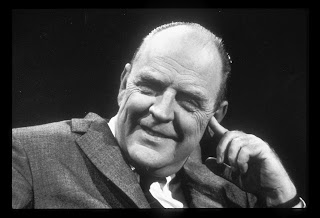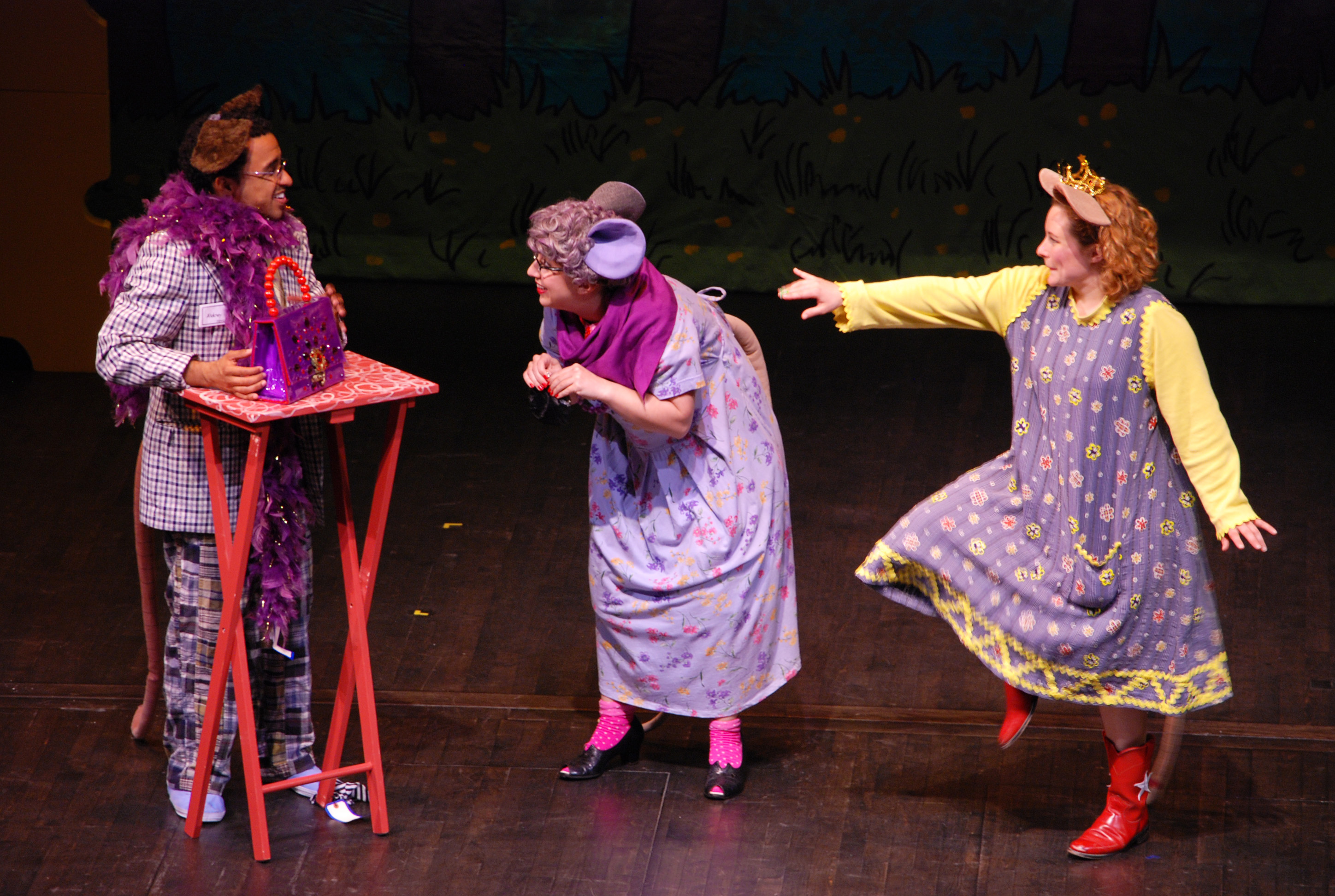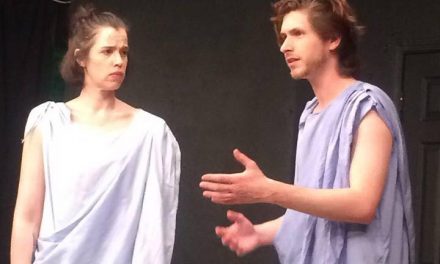 |
| Playwright William Inge |
Summer Brave
Written by William Inge.
Directed by Charlie Sexton
Reviewed by Keith Waits.
Entire contents are copyright © 2012 Keith Waits. All rights reserved.
Summer Brave is a curiosity: an instance where a noted playwright was dissatisfied enough with a hugely successful work that he felt compelled to rewrite it. William Inge wrote the classic Picnic in 1953 and watched it win awards, launch careers, enjoy a long run on Broadway and then be adapted into a popular, if overly glossy film. Yet three years later he felt compelled to rework the material into this script. Never produced during his lifetime, it finally was presented in New York in 1975 and received a lukewarm response from both critics and the public.
The story follows the original fairly closely, with drifter Hal Carter entering a small Kansas town where his “one friend” from college, Alan Seymour, lives. Alan courts “the prettiest girl in town,” Madge Owens; and we know there will be a triangle formed among these three. But small differences emerge that separate the two stories until they become mirrored realities – similar explorations that result in different endings.
Watching this production, it occurred to me that the bad rap Summer Brave gets may be the inevitable result of comparison to a play that has become a classic milestone of mid-century American theatre. At first it appears these characters are playing out the same dramatic arc, but without the iconic dialogue and references that were codified in the popular culture by Joshua Logan’s movie adaptation. Picnic, for better or worse, is seen as a great romantic soap opera; where the relationship between Hal and Madge is depicted as “true love.” It is an impression that the film lifts to giddy heights, with glamorous movie stars who never convince they belong in a small town in Kansas.
But in Summer Brave, Inge almost seems to be reacting to the sweep and swoon that had come to characterize the previous work, keeping the relationships grounded in the base reality of lust and envy and avoiding the cliché of a “happy ending.” Hal is opportunistic in his forceful reach for Madge, and his seduction seems motivated as much by anger at Alan as it is desire for her. Likewise for Rosemary, the “old maid school teacher” who desperately pleads with her indifferent beau, Howard Bevins, to marry her in the wee hours of the morning. Yet this part of the story hasn’t changed as much as the central relationship.
It is interesting to see how the playwright plays with the sequence of events to alter their meaning, and how he sacrifices a healthy degree of the sympathy we feel for the same characters when we encounter them in the first play. Of course, thus may be why Summer Brave is often thought to be the lesser play. It is not as easily marketable as its progenitor.
Director Charlie Sexton leads his well-chosen cast with a sure understanding of the material. There are few attempts to ingratiate and considerable concentration on honing in on the truth of the character. Jake Nichols captures Hal’s charisma and easy charm, but is also unafraid to render his narcissism and braggadocio in vivid terms. Callie Trawick likewise was tender but appropriately self-absorbed as Madge, even if the latter quality also lent itself to a degree of self-consciousness in her performance. Ethan Corder as Alan underscored the fact that this version of Alan is an improvement on the original, bringing complexity to an easily misunderstood and undervalued character. Courtney Doyle was splendid as Madge’s younger sister, Millie, while Clara Burton was a forceful presence as their mother. As Rosemary, Brooke Morrison seemed to be searching for a balance of tempo that eluded her somewhat in the first act, earning laughs by overplaying a bit. Yet she found some truly fine observations and a more subtle approach playing the pathos of the character in act two. DJ Nash was a solid Howard, giving the slightly dull figure some interest in his second act interactions with Ms. Morrison.
The sets by Clayton Marshall and Alec Volz were evocative but not distracting, while Laura Patterson’s costumes had much the same effect, unobtrusively supporting the character presentation and establishing period. The low-key design work was accentuated by a score consisting of lesser known fifties R&B standards that nicely reinforced the themes. This is a period that lends itself to cliché, and the consistently understated design work avoids it.
By play’s end, we are left with a slightly darker resolution for the familiar scenario – one that anyone looking to tie up loose ends may not find satisfying, but in which the audience is engaged to ponder what happens next in the lives of these characters. Their fates are by no means a certainty, and that ambiguity makes Summer Brave worth seeing.
Summer Brave
September 13-15 and 20-22 @ 7:30
September 15, 22 @ 2:00pm
September 15, 22 @ 2:00pm
Walden Theatre
1123 Payne Street
Louisville, KY
(502) 589-0084



